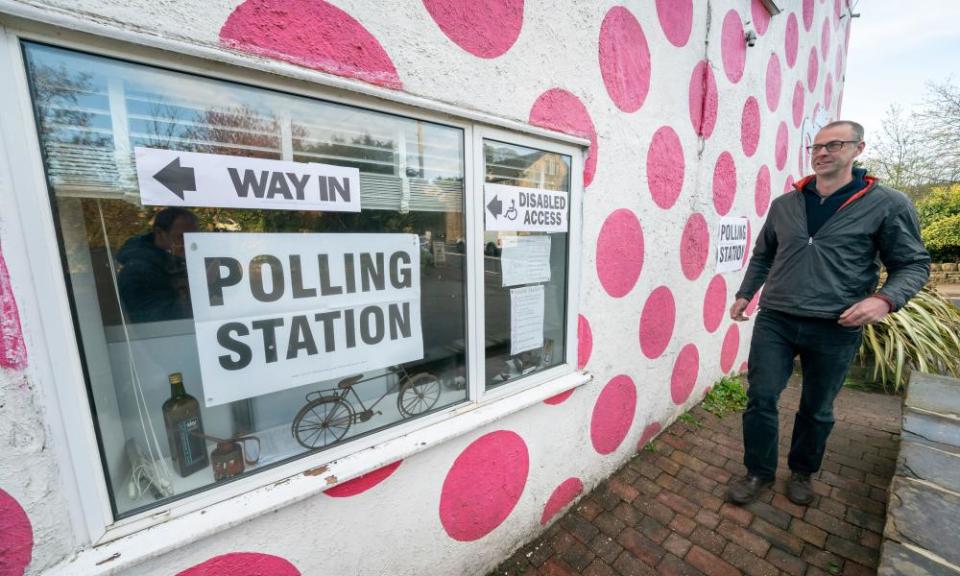Lib Dems and Greens make gains in English local elections

Signs of a Liberal Democrat resurgence emerged in England’s local elections, including in at least one Brexit stronghold, while the Green party also took seats from both Labour and the Conservatives.
In Stockport the Lib Dems became the largest party with a one-seat advantage over Labour. They will probably now form a minority administration, potentially relying on support from the Tories, independents and the first ever Green party councillor in the borough.
In Cambridgeshire, the Conservatives lost control of the council after Lib Dems gained five seats, taking them to 20 to the Tories’ 28. The county hall is now in no overall control.
Perhaps most surprisingly, the anti-Brexit Lib Dems made four gains in leave-voting Sunderland. They now have 12 seats, putting them in third place, after galvanising frustrations with the Labour-run council with the slogan: “They’ve done nowt, kick ‘em out.” The party also ran local campaigns to rid Sunderland of rats and oppose the downgrading of the local eye hospital. Labour kept control of Sunderland, but with 42 seats, down nine on 2019.
The Liberal Democrats used to enjoy strong support in both Stockport and Cambridgeshire. Until 2015, two of Stockport’s four MPs were Lib Dem and the party controlled the council until 2016, but their fortunes dived after the national party went into coalition with the Conservatives, reneging on a key election pledge not to raise tuition fees.
Lisa Smart, the deputy group leader for the Lib Dems in Stockport, admitted her new minority administration would not have an easy ride. “There is a shared animosity towards us and everything we stand for, from both Labour and the Conservatives, but in other walks of life people manage to work together with people they don’t necessarily agree with,” she said.
The Green party was celebrating early positive results on Friday, electing councillors to four new councils for the first time in Northumberland, Stockport, Hastings and Derbyshire.
In Sheffield, the Greens made five gains and managed to oust the leader of the council, Labour’s Bob Johnson, from his Hillsborough ward. The Lib Dems also made three gains from Labour in the Steel City. Sheffield is now in no overall control after Labour also lost its first seat to the Conservatives in at least 20 years.
In South Tyneside, the Greens made two gains from Labour and now have three seats on what was once an impregnably Labour council. David Francis, chair of the local Greens, himself elected in 2019, said the party was gaining a reputation for “having a presence locally, all year round, and getting things done”.
In Suffolk, the Greens made six gains – four from the Tories and one each from Labour and the Lib Dems. Cheering the results, Jonathan Bartley, the Green party’s co-leader, said: “It’s clear that there are no no-go areas for Greens any more.
“We are winning seats in areas that have traditionally been thought of as Labour and Conservative. Green politics is on the rise and it is only the Green party that is offering a clear vision of a better future, with thousands of green jobs, warmer homes, safer streets, thriving local economies and stronger communities.”
Going into the latest elections, the Greens had control of just one council, in Brighton & Hove, but was in coalition in York, Lewes and Bristol.

 Yahoo Finance
Yahoo Finance 